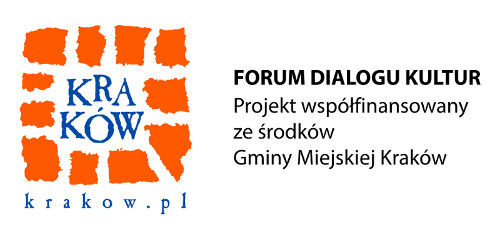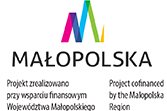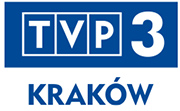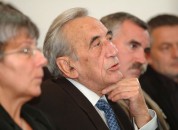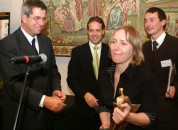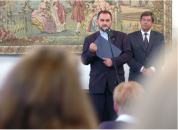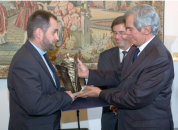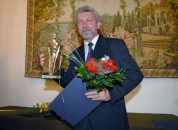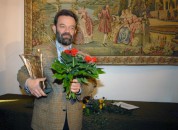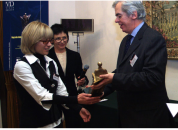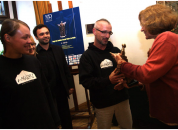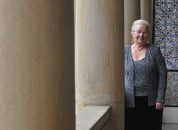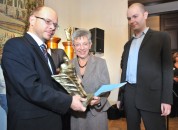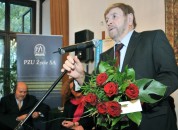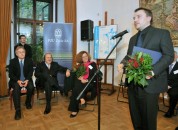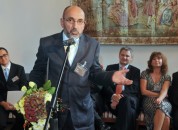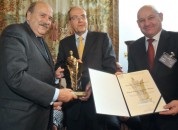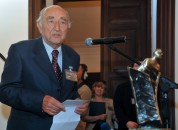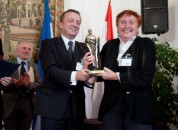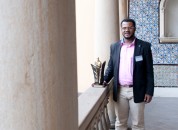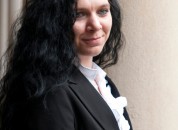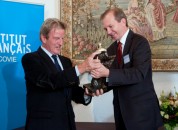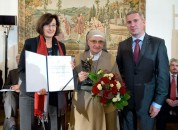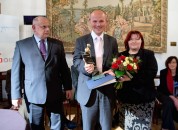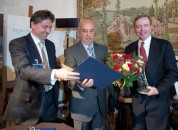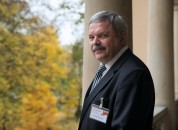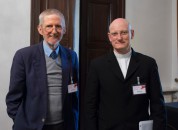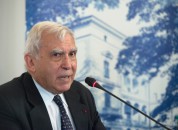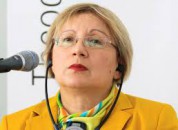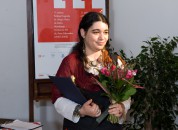Following the initiative of the Villa Decius Association, the Prize of Sérgio Vieira de Mello, the UN High Commissioner for Human Rights (2002-2003) was established in the year 2003 with an aim to promote human rights, democracy and tolerance and had its first edition already in 2004. The permission to establish the Prize was granted by Sérgio’s mother, Madam Gilda Vieira de Mello.
Since 2011 it is called “The Polish Prize of Sérgio Vieira de Mello, the UN High Commissioner for Human Rights (2002-2003)”.
Laureates of the Prize:
- Tadeusz Mazowiecki (Poland) and the ‘One World’ Association (Poland), 2004
- Father Marian Żelazek SVD (India) and the Krzyżowa Foundation for Mutual Understanding in Europe (Poland), 2005
- Alaksandr Milinkiewicz (Belarus) and Jewish Culture Festival (Poland), 2006
- Maryna Hulia (Russian Federation-Poland) and the Magurycz Association (Poland), 2007
- Krystyna Pryjomko-Serafin (United Kingdom) and Helsinki Foundation for Human Rights (Poland); Honorary Prize – Szewach Weiss (Izrael) and Distinction of the Panel of Judges – Michał Żejmis (Poland), 2008
- Fatos Lubonja (Albania) and United Nations Assistance Mission for Iraq (Iraq); Honorary Prize – Leopold Unger (Belgium-Poland), 2009
- Nagy El-Khoury i Mohammad al-Nokkari (Lebanon) and the ‘Memorial’ Association (Russian Federation); Honorary Prize – Late Andrzej Przewoźnik (Poland), 2010
- Hassan Omar Hassan (Kenya) and the Halina Niec Legal Aids Centre (Poland); Honorary Prize – Bernard Kouchner (France), 2011
- Sister Rafael - Urszula Nałęcz (Rwanda-Poland) and the ‘People in Need’ Association (Czech Republic); Honorary Prize – Arnold Wellman (USA), 2012
- Myrosław Marynowicz (Ukraine) and Denis Hurley Centre (Republic of South Africa); Honorary Prize – Adam Daniel Rotfeld (Poland), 2013.
- Leyla Yunus (Azerbaijan), Amalipe Centre for Interethnic Dialogue and Tolerance (Bulgaria), 2014.
- Pietro Bartolo (Italy) and the La Strada Foundation against Trafficking in Persons and Slavery (Poland); Honorary Prize – Siergiej Kowalow (Russian Federation), 2015
- Tahira Abdullah (Pakistan), Culturesof Resistance Network Foundation oraz Staffan de Mistura (Italy), 2016
- Archbishop Alfons Nossol (Poland) and Barzani Charity Foundation (Kurdistan), 2017
- Basil Kerski (Poland) and the Interreligious Council of Albania; Honorary Prize – Hanaa Edwar (Iraq), 2018
The Prize is awarded annually in two categories:
- a person
- a non-governmental organisation
The Prize is awarded to individuals and organizations from all over the world by the Panel of Judges composed of High Representatives of: the President of the Republic of Poland; UN High Commissioner for Refugees; Ambassador of the Federative Republic of Brazil to Poland; Ambassador of the Kingdom of Sweden to Poland; Polish Ministry of Foreign Affairs; Institute of National Remembrance; Polish Commissioner for Civil Rights Protection, Embassies, Consulates and Foundations supporting actions of the Villa Decius Association in matters related to human rights; Founders of the Prize; Chairman and Director of the Villa Decius Association.
The Laureates receive a personal Diploma and a statuette of Sergio Vieira de Mello designed by an outstanding Polish artist, Andrzej Renes. The Prize may also have a financial dimension. The ceremony of awarding the Prize takes place annually in October within the framework of international conferences dedicated to the idea of freedom organized by the Association at the Villa Decius in Krakow.
Honorary patronage:
- Ambassador of the Federative Republic of Brazil to Poland
- Ambassador of the Kingdom of Sweden to Poland
- United Nations High Commissioner for Refugees






